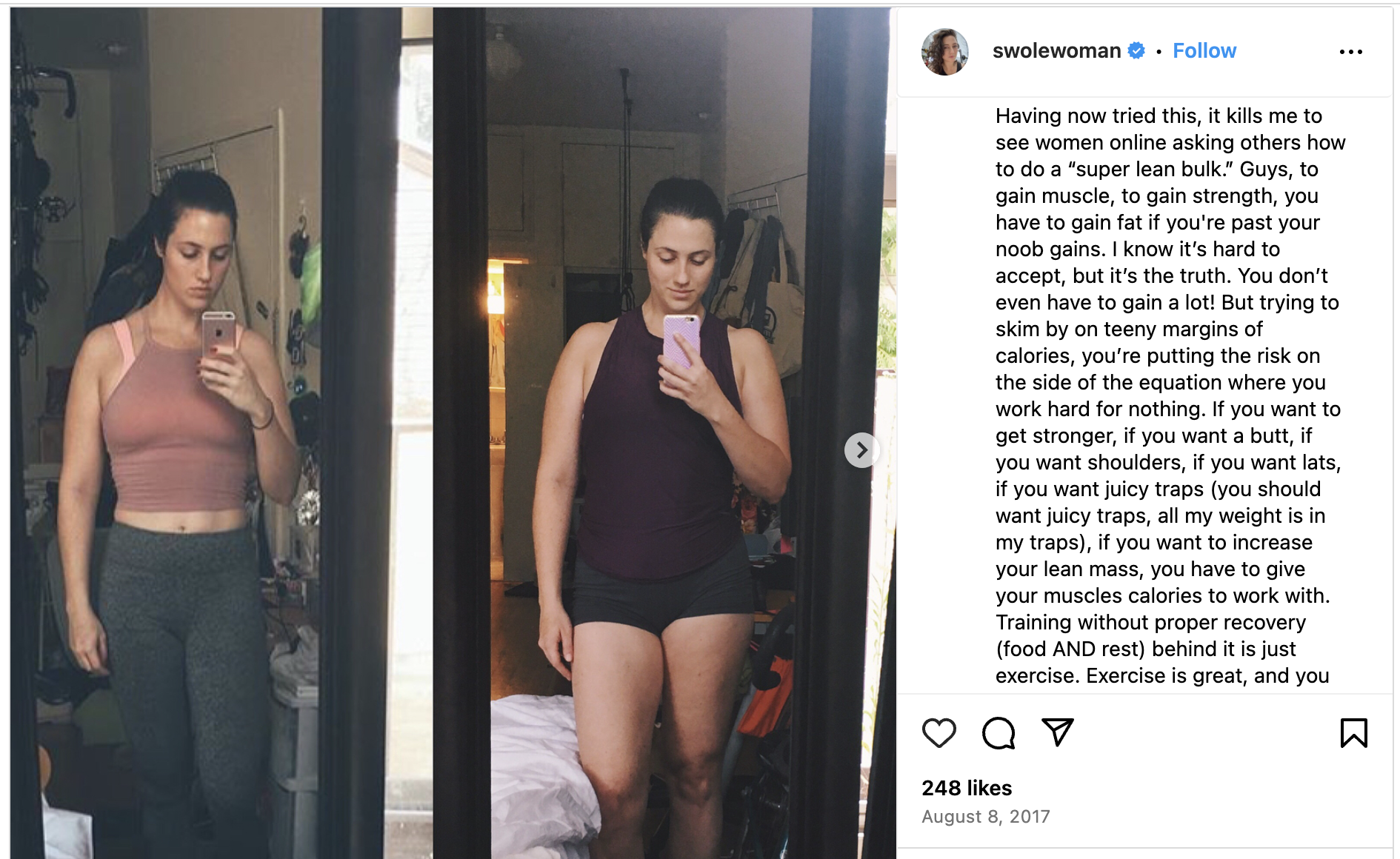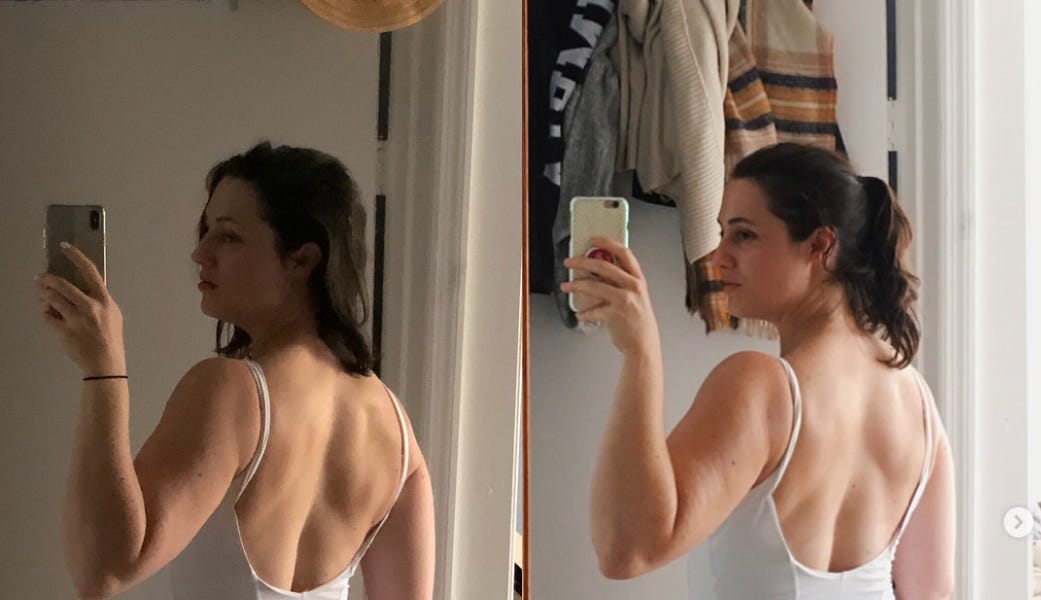'I'm scared to do a weight cut; do I have to?'

The Question
Hey Casey,
I've been lifting almost a good three years now, the first couple of years of which I seemed to be accomplishing actual body weight recomposition. Number went up on my weights at the gym, but my body weight stayed mostly the same. More often than not, I put in the required amount of protein, counting it out, but not worrying about the total amount of calories for the day. I suppose I did a bit of the "big rocks" method.
In the past year, I assume I unwittingly switched to bulking. I put on around 10 pounds and my numbers at the gym shot up. I am the same pant size, although shirts are definitely tighter now and a few tight shorts are no longer in the regular rotation. When I was recomping, I had a flatter, leaner stomach. Now my legs are enormous, and I can front squat considerably more than I weigh regularly, with the minor downside of having a slightly bigger stomach and no longer fitting a couple of favorite outfits.
Perhaps now is the time for a cut? But I am looking at the protein numbers I need to achieve, and thinking through what I'd have to do to get so much protein with so few extraneous calories and how few hours there are in a day, and it just seems impossible. If I do a more "normal" diet instead, I risk losing my hard-earned muscle.
I have no idea how to approach cutting without completely giving up on eating out with friends and just living my life. I can hardly parse the insane advice online, let alone how I am supposed to change my training. (Should number still go up? What kind of RPE should I be shooting for?) If I don't meet the 1.25 grams protein/pound of body weight guidelines, do changes simply not happen or do they just happen less well? Should I even cut at all and just burn those shorts I can't fit anymore and go all in on being a beast forever?
Thank you for your help! -Britt
The Answer
I sense a lot of anxiety in your question, so let me first do a bit of gentle soothing. The thing to remember overall is that no matter what you do, you will be able to build your muscle back, and it will be easier the second time around than the first time. Starting today, you could meld into the couch for three months or a year, and whenever you stood back up to lift weights again, you could probably get back to roughly where you are now in three to six months, maybe less (depending on where you are). That’s the magic of muscle memory. You have built not only strength, but a literal, biological type of resilience that belongs to you now.
Secondly, body change doesn’t happen as fast or as uncontrollably as most of us have been made to fear. You say you gained about ten pounds in a year; that’s less than a pound a month. Let’s say you did your cut upside down and backwards for three months, where you lift only two or three times a week, only eat 0.5g protein per pound of body weight, and eat at least, let’s say, 70% of your maintenance calories. You’re not going to lose all of the muscle you’ve ever built even in that less than optimal scenario, and certainly not all of your strength, not even close.
I don’t throw these numbers out there to be like “this is a good way of doing things”; it’s definitely less than ideal, and would be more painful than necessary. But nor do I want people doing cuts or bulks to feel like they are balanced on a knife edge.There is a continuum of results here. All that changes is what side of the equation you are putting your error on.
You might eat too little, and too little protein, and not push yourself quite as hard in the gym as you could, and end up losing slightly more muscle than if you hadn’t.
Or, you might end up eating slightly too much, more protein than is necessary, and also not push yourself as hard in the gym as you could, and end up losing a little less body fat than you would have otherwise.

But [cups your face in my hands] both of these are okay. You will gain back that pound or so of muscle. You honestly won’t notice the difference between losing like, 10 vs. 12 pounds of body fat. The odds that you will do this to perfection are low, but perfection is not and should not be the goal.
You also won’t be operating blind. You know if your clothes are fitting or not. I also find monitoring body weight to be helpful in figuring out what’s going on, because it’s an “output” number to augment the the “input” number of food. Again, this is all about where you’re putting the error: less measurement, less accuracy in outcome; more measurement, more accuracy. But beyond a certain point, more incremental measuring will not change the results.
So, with all of that in mind first and foremost: What are you supposed to do? I’m going to take your questions one at a time. We’ll get into numbers here, so if you don’t like numbers, please bail! If you do continue, remember food numbers are highly, highly personal, informed by your age, weight, hormonal profile, activity level, and more.[^1] If you need a primer on terms like cutting, bulking, and recomposition, go here.

How much protein?
1 g/lb of protein is plenty. You don’t need to eat 1.25 g/lb.
When you cut, you’re probably going to be working with a 15-25%ish caloric deficit from your maintenance calories. That means if you maintain at 2700, you’d be cutting at between 2300 and 2000 calories. Fewer calories does mean less room for maneuvering your protein macros. But! If your protein intake is, say, 150 g/day, that’s only 600 calories, leaving you 1400-1700 calories to play with even when cutting. This also means you’d be losing, math math math…

